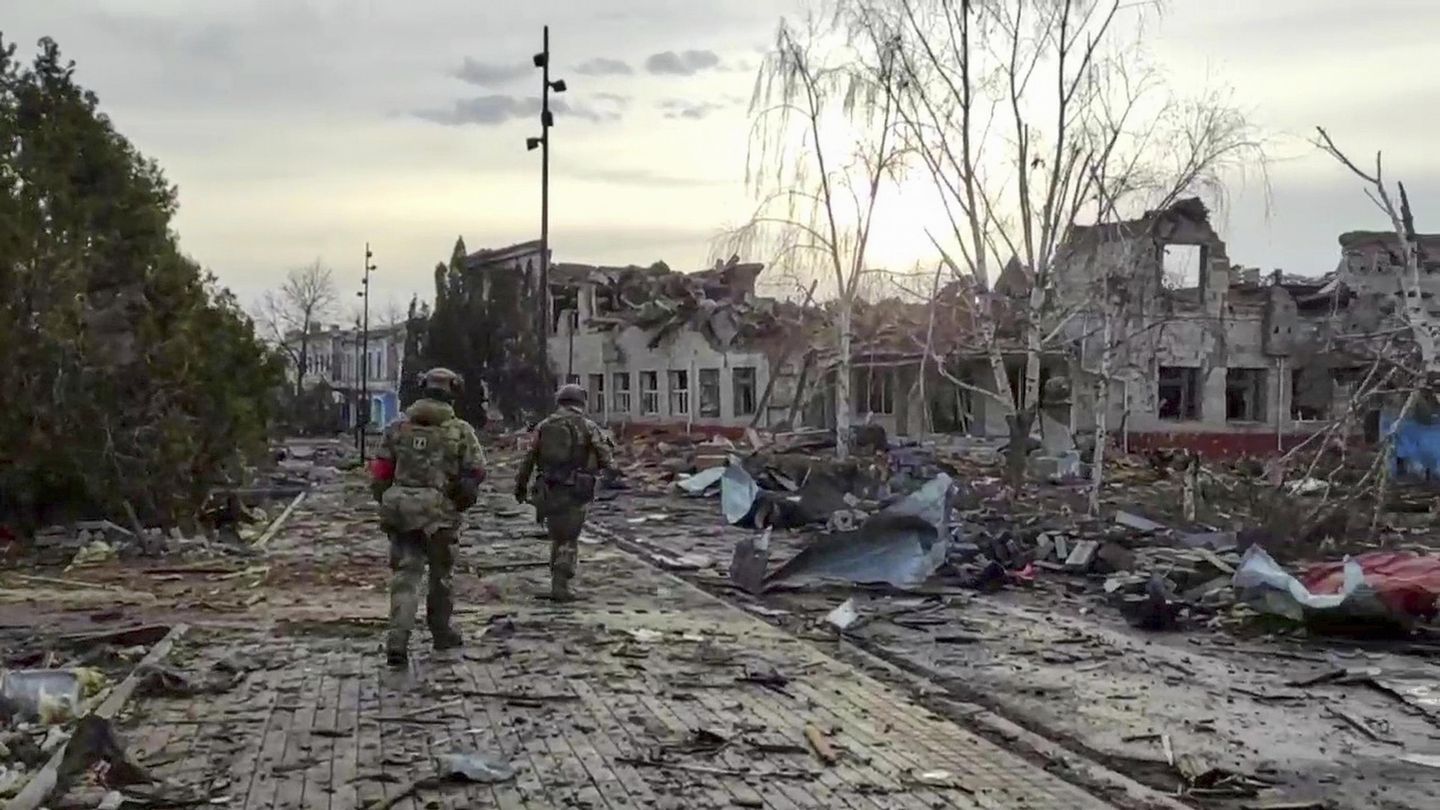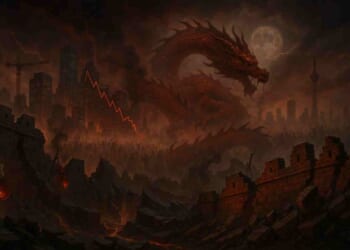
Russian President Vladimir Putin’s massive child kidnapping ring in Ukraine may push America to join Europe and other national governments in slapping the country with a state sponsor of terrorism label.
President Trump has stopped short of hitting Russia with the designation as he struggles to negotiate a peace deal with Mr. Putin to end the war his country has been waging against Ukraine for more than three years.
Mr. Trump has made the return of the abducted children a priority. He hand-delivered a letter from first lady Melania Trump to Mr. Putin in August when the two leaders met in Alaska.
Mrs. Trump’s letter alluded to the abductions and called on Mr. Putin to “protect the innocence of these children.” Her letter earned praise from Ukrainian President Volodymyr Zelenskyy. Mr. Trump also raised the issue with European Commission President Ursula von der Leyen, who said on social media that Mrs. Trump had focused her attention on the kidnappings.
“It is a subject at the top of all lists, and the World will work together to solve it, hopefully bringing them home to their families,” Mr. Trump said in August.
Congress, in the meantime, has grown impatient with Mr. Putin.
Lawmakers stepped up pressure this month, threatening to force the State Department to use the state sponsor of terrorism label as punishment unless Russia returns tens of thousands of children reportedly kidnapped from occupied territories in Ukraine.
A bipartisan group of senators, among them Russia hawk Lindsey Graham, South Carolina Republican, introduced a bill that would compel Secretary of State Marco Rubio to add Russia to the list of countries the United States has designated as state sponsors of terrorism.
The child abductions, Mr. Graham said, are an aspect of the brutal war “that the world has not talked enough about.”
Mr. Graham said he was initially so flabbergasted by the enormous number of children reported kidnapped by the Russians that he questioned the data. The kidnappings were first brought to his attention by Sen. Amy Klobuchar, Minnesota Democrat and co-sponsor of the bill.
“I said, ‘Are you sure about this?’” Mr. Graham recounted earlier this month.
The numbers are staggering.
Ukrainian leaders say Russia has abducted, forcibly transferred or facilitated the illegal deportation of 19,546 Ukrainian children since its invasion in 2022.
Ukraine’s 5 a.m. Coalition, an organization of human rights groups, said the kidnappings are far more rampant and that the Russians have abducted 260,000 to 700,000 Ukrainian children.
“It really does sound so incredible to people. When you first bring the issue up, they’re stunned,” said Gary Marx, host of the “Peace & Power Ukraine” podcast and former president of Defenders of Faith and Religious Freedom in Ukraine. “They’re like, ‘How can this really be happening in the 21st century? It sounds so barbaric.’”
Yale School of Public Health’s Humanitarian Research Lab has studied the kidnappings and determined that the abducted children have been taken to at least 210 facilities inside Russia and its occupied territories in Ukraine. The Russian government controls half the facilities, and some Ukrainian children have been forced into reeducation programs.
At 39 of the facilities, children underwent military training, backing up reports from human rights organizations that kidnapped children have been sent to military camps and trained to fight on the side of the Russians. The research group said the abductions violate international human rights laws.
Mr. Graham said drastic measures must be taken to halt the abductions and return the children to their families in Ukraine.
“This is 2025. The Russians have invaded Ukraine, and they have kidnapped, we think, 19,546 Ukrainian children away from their families in Ukraine, and brought them to Russia in some form,” he said. “And the teenagers, they’re training them to fight their own country. What’s the right answer? Do something about it. Get off our ass as a world and make this unacceptable.”
Congress has become exasperated with Mr. Putin, who has continued to launch drone and missile attacks against Ukraine as peace negotiations stall.
Lawmakers are also becoming impatient with Mr. Trump. Democrats and some Republicans have complained that his approach with the Russian leader has not been tough enough.
Mr. Graham said legislation that threatens to designate Russia a state sponsor of terrorism creates “another front against Putin’s Russia.”
A separate bill authored by Mr. Graham would impose “bone-crushing” sanctions unless Russia takes steps to negotiate a peace deal. It would also penalize European countries with steep tariffs if they continue to buy Russian oil, which has helped Mr. Putin fund his attack on Ukraine.
The sanctions legislation has bipartisan, veto-proof support in the Senate, meaning it can become law even if Mr. Trump objects.
The president has said he wants NATO nations to issue sanctions first and has called on allied countries to stop buying oil from Russia.
Majority Leader John Thune, South Dakota Republican, said this month that there has been “intensified interest” in bringing the sanctions bill to the floor for debate, but he is awaiting Mr. Trump’s go-ahead.
Mr. Thune did not indicate whether he would take up the measure to designate Russia a state sponsor of terrorism if it doesn’t return abducted children.
A Thune spokesman did not respond to an inquiry from The Washington Times. When asked Monday whether Mr. Trump would support the terrorist-designation bill, White House press secretary Karoline Leavitt said she had “no news to share.”
Iran, Syria, Cuba and North Korea are the only nations the United States has labeled state sponsors of terrorism.
The designation is accompanied by severe sanctions, including restrictions on U.S. foreign aid, a ban on defense exports and sales, and financial and other restrictions.
The Trump and Biden administrations resisted calls to slap the terrorism label on Russia, in part because the U.S. already heavily sanctions the country. Mr. Trump has said more sanctions would make it harder for him to help Russia and Ukraine strike a peace deal.
Mr. Marx said many of the kidnapped children were stolen from orphanages in occupied Ukraine or from families where one or both parents were killed while fighting in the war. The Russian government has also worked to erase the Ukrainian identity of the children, including their religion and language, by placing them in reeducation camps.
Russia, Mr. Marx said, is building a database of as many as 1.6 million children living in territory occupied by Russia. It is meant to create an inventory that will make it more difficult for any of the children, among them those who have been abducted, to be returned to Ukraine-ruled territory.
Retired Lt. Gen. Joseph Keith Kellogg, the U.S. special envoy to Ukraine, assured Mr. Marx he would address the status of the kidnapped children in peace negotiations.
The Trump administration, Mr. Marx said, “has been speaking up for these children at every phase.”
• Kerry Picket contributed to this report.











